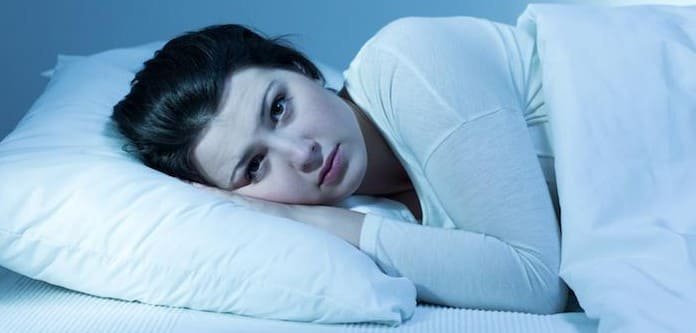Treating Insomnia: Medications and Lifestyle Changes

Table of Contents
- Understanding Insomnia: Causes and Symptoms
- The Role of Medications: Prescription and Over
- the
- Counter Options
- Lifestyle Changes: Effective Strategies for Better Sleep
- Cognitive Behavioral Therapy: A Non
- Medication Approach to Insomnia Treatment
- Combining Medications and Lifestyle Changes: Optimal Treatment for Insomnia
Understanding Insomnia: Causes and Symptoms
Insomnia is a common sleep disorder that affects millions of people worldwide. It is characterized by difficulty falling asleep, staying asleep, or both. Understanding the causes and symptoms of insomnia is crucial in finding effective treatment methods. Here, we explore some of the key aspects of insomnia.
Causes of Insomnia: Insomnia can be caused by various factors, including:
- Stress: Emotional and psychological stress can significantly disrupt sleep patterns.
- Anxiety and Depression: These mental health conditions often contribute to insomnia.
- Medications: Certain drugs, such as antidepressants or those for asthma or high blood pressure, can interfere with sleep.
- Medical Conditions: Chronic pain, asthma, allergies, acid reflux, and other medical conditions can lead to insomnia.
- Disruptions in Sleep Environment: Factors like noise, light, an uncomfortable bed, or extreme temperatures can hinder sleep quality.
Symptoms of Insomnia: Insomnia can manifest through various symptoms, including:
- Difficulty Falling Asleep: Taking a long time to fall asleep, even when tired.
- Frequent Waking: Waking up during the night and having trouble returning to sleep.
- Early Morning Awakening: Waking up very early and unable to go back to sleep.
- Daytime Fatigue: Feeling excessively tired, lacking energy, or experiencing poor concentration and memory.
- Irritability and Mood Disturbances: Insomnia can lead to irritability, anxiety, and depression.
- Impaired Performance and Functioning: Insomnia can affect work or school performance and overall daily functioning.
To effectively treat insomnia, it is essential to address its underlying causes. While medications can help manage insomnia symptoms in the short term, relying on them for an extended period may have potential side effects. Instead, incorporating lifestyle changes is often recommended. These changes may include:
- Establishing a Consistent Sleep Routine: Going to bed and waking up at the same time every day, even on weekends, can help regulate sleep patterns.
- Creating a Sleep-Friendly Environment: Keeping the bedroom dark, quiet, and at a comfortable temperature promotes quality sleep.
- Avoiding Stimulants: Limiting the consumption of caffeine, nicotine, and alcohol closer to bedtime can aid in falling asleep easier.
- Engaging in Relaxation Techniques: Practices like deep breathing exercises, meditation, or taking a warm bath before bed can help induce sleepiness.
- Getting Regular Exercise: Engaging in physical activity during the day can promote better sleep at night.
By understanding the causes and symptoms of insomnia, individuals experiencing sleep troubles can take appropriate steps to address their condition. Implementing healthy lifestyle changes and seeking professional guidance can significantly improve sleep quality and overall well-being.
The Role of Medications: Prescription and Over-the-Counter
When it comes to treating insomnia, medications can play a crucial role in helping individuals get the restful sleep they need. There are both prescription and over-the-counter (OTC) options available, depending on the severity and underlying causes of the insomnia. It’s important to consult with a healthcare professional before starting any medication regimen.
Prescription medications are typically recommended for more severe cases of insomnia or when over-the-counter options have not provided relief. These medications are more potent and are regulated by medical professionals. They may include:
- Benzodiazepines: These medications, such as Diazepam or Lorazepam, are used to promote relaxation and improve sleep quality. They can be habit-forming and should be used under strict medical supervision.
- Non-Benzodiazepine Sedatives: This class of drugs, including Zolpidem and Eszopiclone, works by depressing the central nervous system to induce sleep. They are generally less habit-forming than benzodiazepines.
- Antidepressants: Certain antidepressants, such as Trazodone, have sedative effects and can be prescribed to help individuals experiencing both depression and insomnia.
In addition to prescription options, there are also over-the-counter medications that can be considered for mild to moderate cases of insomnia. These medications are easily accessible and do not require a prescription. Examples include:
- Antihistamines: OTC antihistamines like diphenhydramine (found in brands like Benadrylreg;) can cause drowsiness and are sometimes used for short-term relief of insomnia.
- Melatonin: This hormone helps regulate sleep-wake cycles and is available in supplement form. It can be effective for individuals with mild insomnia or those experiencing jet lag.
It’s important to note that while medications can provide temporary relief, they are not a long-term solution for insomnia. They should be used as part of a comprehensive treatment plan that includes lifestyle changes and proper sleep hygiene. Relying solely on medications can mask underlying issues causing the insomnia.
Medications should always be taken according to the recommended dosage and duration. Stopping medications abruptly or misusing them can result in withdrawal symptoms or negative effects on sleep quality. It’s essential to consult with a healthcare professional for guidance and to address any concerns or side effects that may arise. Remember, the ultimate goal is to address the root cause of insomnia and establish healthy sleep patterns for improved overall well-being.
Treating Insomnia: Medications and Lifestyle Changes
Insomnia is a common sleep disorder that affects millions of people around the world. Chronic insomnia can significantly impact daily life, leading to fatigue, irritability, and difficulty concentrating. Fortunately, there are various treatment options available, which include medications and lifestyle changes.
Medications for Insomnia:
In cases of severe insomnia or when other forms of treatment haven’t been effective, healthcare professionals may prescribe medications to help improve sleep patterns. These medications can be divided into different categories:
- Sedatives: Sedative medications, such as benzodiazepines and non-benzodiazepine hypnotics, are commonly used to induce sleep and reduce anxiety. However, they can be habit-forming and may cause side effects, so it’s important to use them under medical supervision.
- Antidepressants: Some antidepressant medications, such as trazodone, amitriptyline, and doxepin, can also be prescribed off-label to aid sleep. They work by increasing certain neurotransmitters that promote drowsiness.
- Melatonin Receptor Agonists: Medications like ramelteon and tasimelteon mimic the effects of melatonin, a hormone that regulates the sleep-wake cycle. They are often used to treat insomnia related to circadian rhythm disorders.
Lifestyle Changes:
Alongside or instead of medication, implementing certain lifestyle changes can help manage insomnia:
- Maintain a Regular Sleep Schedule: Going to bed and waking up at the same time every day helps regulate the body’s internal clock, promoting better sleep.
- Create a Calming Bedtime Routine: Establishing a relaxation routine before bed, such as taking a warm bath, reading, or practicing deep breathing exercises, can signal to the body that it’s time to sleep.
- Create a Sleep-Conducive Environment: Make sure your bedroom is dark, quiet, and at a comfortable temperature. Use blackout curtains, earplugs, or white noise machines to eliminate disturbances.
- Avoid Stimulants: Limit the consumption of caffeine, nicotine, and alcohol, especially close to bedtime, as they can interfere with sleep patterns.
- Exercise Regularly: Engaging in moderate-intensity exercises during the day can promote better sleep at night. However, strenuous workouts close to bedtime should be avoided as they can increase alertness.
- Mindfulness and Stress Reduction: Incorporate stress management techniques into your daily routine, such as meditation or yoga, to promote relaxation and reduce anxiety that may interfere with sleep.
It’s important to consult with a healthcare professional to determine the most suitable treatment approach for your insomnia. They can assess your specific symptoms, discuss potential underlying causes, and create a personalized treatment plan combining medication and lifestyle modifications to help improve your sleep quality.
Counter Options
While medications and lifestyle changes can significantly improve insomnia symptoms, they may not be suitable or effective for everyone. In such cases, there are other counter options to consider:
- Herbal remedies: Many people find relief through herbal supplements like valerian root, chamomile, or lavender. These natural remedies can help with relaxation and sleep quality. However, it’s important to consult with a healthcare professional before trying any herbal supplements, as they may interact with certain medications or have unwanted side effects.
- Acupuncture: Acupuncture, an ancient Chinese practice involving the insertion of thin needles into specific points on the body, may help improve sleep quality. Some individuals find it helpful in reducing insomnia symptoms and promoting relaxation. Consider consulting a licensed acupuncturist to explore this option.
- Cognitive Behavioral Therapy for Insomnia (CBT-I): CBT-I is a non-medical therapy that focuses on changing negative thoughts and behaviors that contribute to insomnia. It involves techniques such as sleep restriction, relaxation training, and sleep hygiene education. CBT-I has been proven effective, and many individuals find it helpful in overcoming insomnia without medication.
- Meditation and mindfulness: Practicing mindfulness techniques, such as meditation or deep breathing exercises, can promote relaxation and improve sleep quality. These techniques help calm the mind and reduce anxiety, making it easier to fall asleep and stay asleep.
It’s crucial to remember that even though over-the-counter medications are readily available, they may not be the best solution for chronic insomnia. It’s always advisable to consult with a healthcare professional before starting any new treatment. They can assess your specific situation and guide you toward the most appropriate approach for your insomnia management.
Lifestyle Changes: Effective Strategies for Better Sleep
While medications can be helpful for treating insomnia, implementing lifestyle changes is equally crucial for long-term improvement in your sleep patterns. By adopting healthy habits and making adjustments to your daily routine, you can create a conducive environment for getting quality sleep. Here are some effective strategies to help you achieve better sleep naturally:
- Maintain a Consistent Sleep Schedule: Establishing a regular sleep routine helps regulate your body’s internal clock, making it easier to fall asleep and wake up at the desired times.
- Create a Relaxing Bedtime Ritual: Engage in activities that promote relaxation before bed, such as taking a warm bath, reading, or practicing meditation. Avoid stimulating activities and electronic devices that emit blue light which can interfere with your sleep.
- Create a Sleep-Friendly Bedroom: Make your sleeping environment comfortable, quiet, and conducive to sleep. Ensure your room is dark enough, at a cool temperature, and invest in a comfortable mattress and pillows that support your sleep posture.
- Avoid Stimulants and Heavy Meals: Limit your intake of caffeine, nicotine, and alcohol, especially in the late afternoon and evening. Additionally, try not to consume heavy meals close to bedtime, as indigestion and discomfort can disrupt your sleep.
- Exercise Regularly: Engaging in physical activity during the day can help promote better sleep at night. However, avoid intense exercise close to bedtime, as it may energize you and make it difficult to fall asleep.
- Manage Stress: Find healthy ways to manage stress, such as practicing relaxation techniques, engaging in hobbies, or seeking support from friends, family, or a therapist. Chronic stress can significantly impact your sleep quality.
- Create a Sleep-Conducive Mindset: Cultivate a positive attitude towards sleep and establish an association between your bed and sleep. Avoid doing non-sleep-related activities, such as working or watching TV, in bed, as it can disrupt this association.
- Avoid Napping: If you have trouble sleeping at night, try to avoid daytime napping, especially in the late afternoon. If you really need a nap, limit it to a short duration and avoid napping too close to your bedtime.
By implementing these lifestyle changes consistently, you can significantly improve your sleep quality and overcome insomnia naturally. It may take time for the effects to be fully noticeable, so be patient and persistent in your efforts. If your sleep problems persist despite these strategies, it is recommended to consult a healthcare professional for further evaluation and guidance.
Cognitive Behavioral Therapy: A Non-Medication Approach for Treating Insomnia
When it comes to treating insomnia, many people automatically think of medications. However, there are alternative approaches that can be just as effective, if not more so. One such approach is Cognitive Behavioral Therapy (CBT), which focuses on identifying and changing the thoughts and behaviors that contribute to sleep problems. CBT can be a valuable tool in helping individuals overcome insomnia without the need for medications.
CBT for insomnia typically involves the following techniques:
- Sleep Restriction: This technique involves limiting the amount of time spent in bed to match the actual amount of sleep obtained. It helps to consolidate sleep and increase sleep efficiency.
- Stimulus Control: This technique aims to associate the bed and bedroom with sleep by following a consistent sleep routine and avoiding stimulating activities in bed.
- Sleep Hygiene: Adopting good sleep habits, such as maintaining a regular sleep schedule, creating a comfortable sleep environment, and avoiding substances that can disrupt sleep like caffeine and nicotine.
- Relaxation Techniques: Practicing relaxation techniques like deep breathing, progressive muscle relaxation, or guided imagery can help calm the mind and prepare the body for sleep.
- Cognitive Restructuring: This technique helps identify and challenge negative thoughts and beliefs about sleep, replacing them with more realistic and positive thoughts.
Unlike medications, CBT addresses the underlying causes of insomnia and provides individuals with long-lasting skills and strategies to manage sleep difficulties. It is a structured and evidence-based approach that is typically delivered by a trained therapist or through self-help programs.
CBT has been proven to be highly effective in treating insomnia, with research showing improvements in sleep quality and duration, as well as reductions in sleep-related anxiety and depression symptoms. Additionally, it can have positive effects on overall daytime functioning and quality of life.
It’s important to note that CBT may not be suitable for everyone, and in some cases, a combination of CBT and medication may be the most effective approach. Consulting with a healthcare professional can help determine the best treatment plan for individual needs.
Overall, Cognitive Behavioral Therapy offers a non-medication alternative for individuals seeking treatment for insomnia. By targeting the root causes of sleep problems and promoting healthy sleep habits, CBT can help restore restful nights and improve overall well-being.
Medication Approach to Insomnia Treatment
Insomnia is a common sleep disorder that can significantly impact a person’s quality of life. In cases where lifestyle modifications and other non-pharmacological interventions have been ineffective, medication may be a suitable option to address the issue. Medications for insomnia can help regulate sleep patterns, improve sleep quality, and provide much-needed relief to individuals suffering from chronic sleeplessness.
There are various types of medications commonly used in the treatment of insomnia:
- Sedative-hypnotics: These medications, such as benzodiazepines and non-benzodiazepines, act on the central nervous system to induce sleep. They are often prescribed for short-term use due to the risk of dependence and tolerance.
- Antidepressants: Certain antidepressants, such as trazodone and amitriptyline, can be effective in treating insomnia, especially when accompanied by depression or anxiety.
- Melatonin agonists: Melatonin is a hormone that helps regulate the sleep-wake cycle. Melatonin agonists, like ramelteon, mimic the effects of melatonin and can be useful for individuals with difficulty falling asleep.
- Antihistamines: Some over-the-counter antihistamines, such as diphenhydramine, can cause drowsiness and are occasionally used for short-term relief of insomnia symptoms.
It is important to note that medication should never be the first-line treatment for insomnia. Lifestyle changes, such as practicing good sleep hygiene, maintaining a regular sleep schedule, and reducing stress, should be attempted before considering medication. Additionally, it is crucial to consult with a healthcare professional before starting any medication for insomnia.
Medication for insomnia can provide temporary relief, but it is not a cure. Long-term use of certain medications can lead to dependency, and the effectiveness of some drugs may decrease over time. Furthermore, side effects such as dizziness, daytime drowsiness, and cognitive impairment can occur.
The medication approach to treating insomnia should always be individualized, taking into account the specific needs and circumstances of each person. A comprehensive evaluation by a healthcare provider can help determine the most appropriate medication, dosage, and duration of treatment for insomnia.
In conclusion, medication can play a role in the treatment of insomnia when other approaches have been unsuccessful. However, it should be used judiciously, under the guidance of a healthcare professional, and as part of a comprehensive treatment plan that includes lifestyle modifications and other non-pharmacological interventions.
Combining Medications and Lifestyle Changes: Optimal Treatment for Insomnia
Treating Insomnia effectively often requires a combination of medications and lifestyle changes. While medications can provide immediate relief, incorporating healthy habits and making adjustments to your routine can significantly improve your sleep quality in the long run. Here are some strategies to achieve optimal treatment for insomnia:
1. Consult with a Healthcare Professional:
The first step towards treating insomnia is to consult with a healthcare professional who can accurately diagnose your condition and recommend appropriate interventions. They will evaluate your sleep patterns, medical history, and potential contributing factors to suggest a tailored treatment plan.
2. Medications for Short-Term Relief:
Medications can help alleviate the symptoms of insomnia in the short term, especially when sleep disruption becomes unbearable. Sleep aids such as benzodiazepines or nonbenzodiazepines can be prescribed by your healthcare provider. However, it’s crucial to use them under professional guidance due to potential side effects and the risk of dependence.
3. Developing a Consistent Sleep Routine:
Establishing a regular sleep routine is essential for improving sleep quality. Try to go to bed and wake up at the same time each day, even on weekends. Creating a relaxing bedtime routine, like reading a book or taking a warm bath, signals your body that it’s time to wind down.
4. Creating a Sleep-Friendly Environment:
Your sleep environment plays a significant role in promoting sound sleep. Make your bedroom a comfortable and peaceful space by investing in a supportive mattress, using blackout curtains, blocking disturbing noises, and maintaining a cool temperature. By optimizing your surroundings, you can minimize sleep interruptions.
5. Cognitive Behavioral Therapy for Insomnia (CBT-I):
Cognitive Behavioral Therapy for Insomnia is a proven therapeutic approach that can effectively treat insomnia without relying solely on medications. CBT-I helps identify and change negative thoughts and behaviors associated with sleep. It aims to reframe negative sleep perceptions and establish healthy sleep habits for long-term relief.
6. Daily Exercise and Relaxation Techniques:
Engaging in regular physical exercise can improve sleep duration and quality. Aim for at least 30 minutes of moderate-intensity exercise daily, but avoid strenuous activities closer to bedtime. Additionally, practicing relaxation techniques like deep breathing exercises, meditation, or yoga can help reduce anxiety and promote relaxation before sleep.
7. Limit Stimulants and Screen Time:
Avoid consumption of stimulants like caffeine, nicotine, and alcohol, especially in the evening. These substances can disrupt your sleep cycle and make it harder to fall asleep. Additionally, limit screen time, especially from electronic devices emitting blue light, at least an hour before bedtime as they can interfere with your natural sleep-wake cycle.
8. Stress Management Techniques:
Managing stress is crucial for restful sleep. Engage in activities that help you relax and unwind, such as listening to soothing music, practicing mindfulness, or journaling. If stress and anxiety persist, consider seeking professional help to address underlying mental health issues that might be contributing to your insomnia.
Remember, everyone’s experience with insomnia is unique, and the right treatment approach varies from person to person. It’s essential to work closely with a healthcare professional, who can guide and monitor your progress, ensuring you find the optimal treatment plan that suits your specific needs. By combining medications and making positive lifestyle changes, you can achieve restful and rejuvenating sleep in the long term.


























